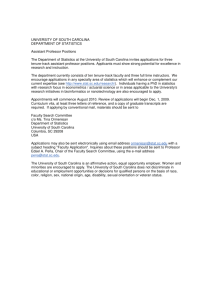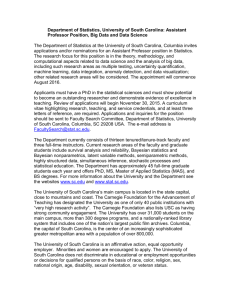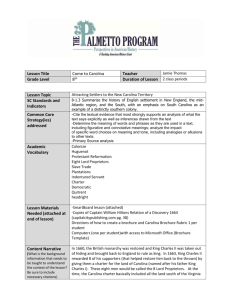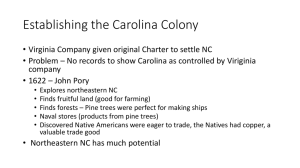North Carolina Colonization
advertisement
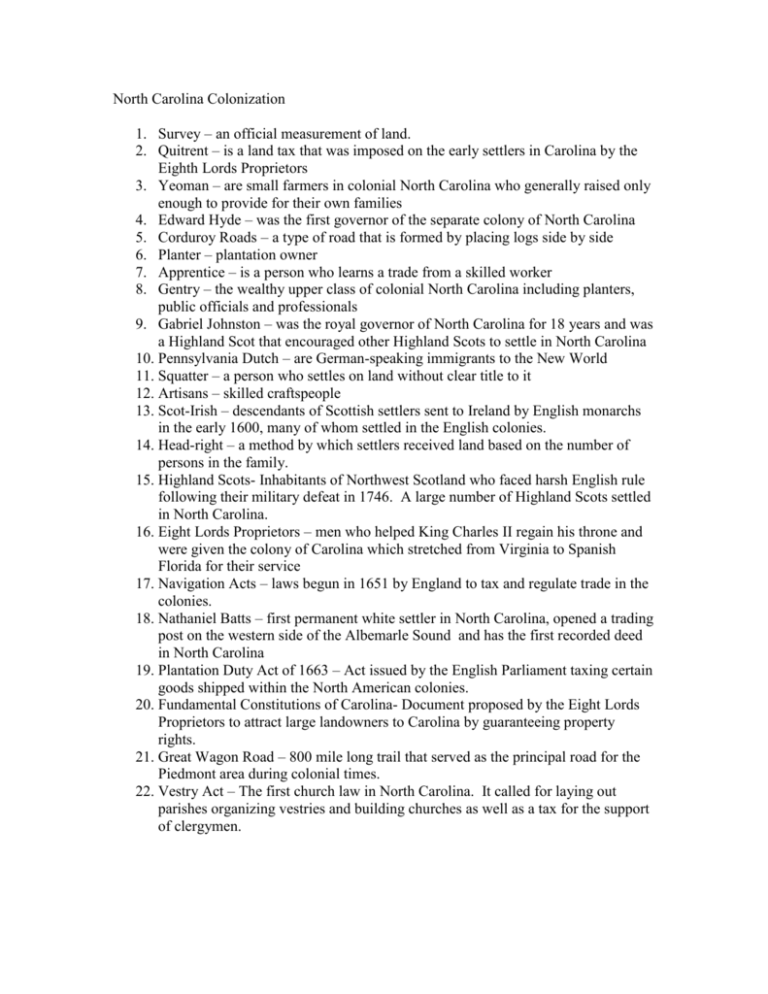
North Carolina Colonization 1. Survey – an official measurement of land. 2. Quitrent – is a land tax that was imposed on the early settlers in Carolina by the Eighth Lords Proprietors 3. Yeoman – are small farmers in colonial North Carolina who generally raised only enough to provide for their own families 4. Edward Hyde – was the first governor of the separate colony of North Carolina 5. Corduroy Roads – a type of road that is formed by placing logs side by side 6. Planter – plantation owner 7. Apprentice – is a person who learns a trade from a skilled worker 8. Gentry – the wealthy upper class of colonial North Carolina including planters, public officials and professionals 9. Gabriel Johnston – was the royal governor of North Carolina for 18 years and was a Highland Scot that encouraged other Highland Scots to settle in North Carolina 10. Pennsylvania Dutch – are German-speaking immigrants to the New World 11. Squatter – a person who settles on land without clear title to it 12. Artisans – skilled craftspeople 13. Scot-Irish – descendants of Scottish settlers sent to Ireland by English monarchs in the early 1600, many of whom settled in the English colonies. 14. Head-right – a method by which settlers received land based on the number of persons in the family. 15. Highland Scots- Inhabitants of Northwest Scotland who faced harsh English rule following their military defeat in 1746. A large number of Highland Scots settled in North Carolina. 16. Eight Lords Proprietors – men who helped King Charles II regain his throne and were given the colony of Carolina which stretched from Virginia to Spanish Florida for their service 17. Navigation Acts – laws begun in 1651 by England to tax and regulate trade in the colonies. 18. Nathaniel Batts – first permanent white settler in North Carolina, opened a trading post on the western side of the Albemarle Sound and has the first recorded deed in North Carolina 19. Plantation Duty Act of 1663 – Act issued by the English Parliament taxing certain goods shipped within the North American colonies. 20. Fundamental Constitutions of Carolina- Document proposed by the Eight Lords Proprietors to attract large landowners to Carolina by guaranteeing property rights. 21. Great Wagon Road – 800 mile long trail that served as the principal road for the Piedmont area during colonial times. 22. Vestry Act – The first church law in North Carolina. It called for laying out parishes organizing vestries and building churches as well as a tax for the support of clergymen.





